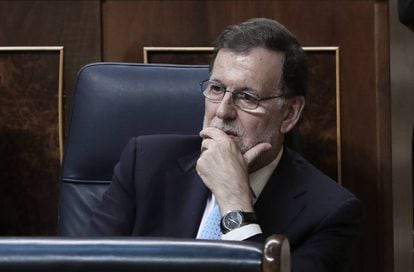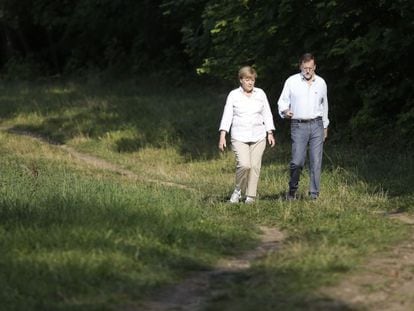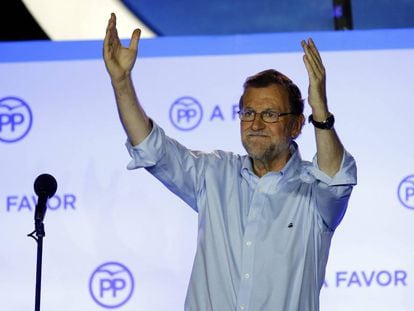Exasperating impasse
As talks begin with King Felipe on forming a government, no party has come up with any new ideas

The week-long round of consultations between King Felipe VI and Spain’s leading political parties that open today take place amid absolute uncertainty. More than a month after a second general election in six months, it is deeply worrying that acting Prime Minister Mariano Rajoy has not even bothered to set up a negotiation commission and that he has so far failed to sit down for serious talks with opposition leaders, notably Albert Rivera of Ciudadanos, who has shown himself the most willing to hammer out some kind of agreement that would allow Rajoy to form a government.
This disturbing scenario is very much a replay of what happened in the months following December’s inconclusive elections, when Rajoy twice refused to form a government, Pablo Iglesias of Podemos announced a coalition with the Socialists without having bothered to consult its leader, Pedro Sánchez, first, and finally, Sánchez unsuccessfully sought Congress’s approval to form a government in coalition with Ciudadanos. It was to be hoped that the leadership of the main parties would have learnt from their mistakes, but the evidence suggests otherwise.
Rajoy, as the man leading the party with the most votes in the June 26 election, is most to blame for a situation unworthy of an advanced democracy and cannot afford to waste any more time. What the electorate wants to know is whether he is the solution or the problem to Spain’s lack of government, and its wants to know sooner rather than later.
Given that they seemingly are unable to offer an alternative to Rajoy, Ciudadanos and the Socialists are going to have to shift their positions. If they recognize this publicly, they might at least avoid accusations of responsibility for the current mess.
Above and beyond the explanations each leader will have to provide to the electorate, what is of real concern is that their respective partisan strategies will once again mean that King Felipe’s consultations will lead to failure. Turning up at the Zarzuela royal palace without having done their homework or pressuring the head of state to somehow sort things out for them is imposing on the King an unwarranted responsibility. As with other constitutional monarchies, the role of Spain’s king is to ratify the decisions made by individuals and institutions constitutionally empowered to make those decisions, not to compensate for the shortsightedness of the country’s politicians, who seem unconcerned at the damage they would cause by condemning the Crown to accept the failure of this round of consultations.
It is precisely because Spain’s Constitution is vague about establishing a time frame or procedures to create a government when no party has a majority that the country’s politicians must now take decision to unblock the current impasse. Instead, they are hiding behind the law to try to buy time that neither the country nor its people can afford.
The task at hand is to clear Spanish politics of the mines that have been planted there. The country’s leaders must now start talking on the basis of shifting their positions, both in public and private: that is what we pay them for.
English version by Nick Lyne.
Sign up for our newsletter
EL PAÍS English Edition has launched a weekly newsletter. Sign up today to receive a selection of our best stories in your inbox every Saturday morning. For full details about how to subscribe, click here












































